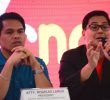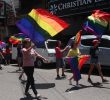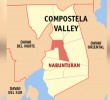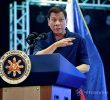Filipinos’ religious character was put to test in the just concluded Papal visit. This identity speaks of two shades: one is being a colony of Spain which ruled the country for more than 300 years using Catholicism and the other one is its capacity to free the nation from such colonization using its own indigenous resources and perspective. Its colonial experience did not interfere heavily in the growth and development of its spirituality collectively. In fact, it has taught them more in terms of indigenization of Catholicism as they waged an archipelagic armed-struggle during Spain’s subjugation.
Distinctly, religious in the country became more prominent in the span of national democratic revolution from Spanish time (emergence of GOMBURZA and Aglipay) to the strand of Catholic influence in the socio-cultural landscape in the midst of a call for a just and lasting peace under Marcos era (formation of circles of Christians for National Liberation). Genuine concern for the people was well demonstrated in many ways in such broad alliance for a free Philippines via an anti-Marcos dictatorial campaign efficiently and effectively handled by prominent religious personalities. In Mindanao, particularly, the conscientized religious grew in number since Martial Law and reached its ebb when ostensibly a democratic space was created through Corazon C. Aquino’s yellow government in 1986.
Understandably, the dwindling human resources of the Catholics engaged in working directly in systematic community education, organizing and mobilization since Corazon Aquino’s time may have an impact on the status of the poor in the country. The poor remains 75 % of the population where the intelligentsia is increasingly becoming part of the chunk. Additionally, the complacency felt among the flock when Marcos was ousted spelled a vacuum waiting for another power to push it up.
The adulation poured into the Holy Father in his 5-day visit to the Philippines last week may have been enthused to rouse the sleeping local folks about the church’s role in exposing and opposing corruption, keeping a critical eye on resource management, advancing effective and efficient social service delivery towards pursuing a just and lasting peace. Filipinos promise to embrace the homilies and statements of the Pope in this visit. For his part, the Pope reinforced his earlier public commentaries of the burning issues on economy and politics. Cultural and welfare concerns focused more on the role of families, child development and women.
While Papa Kiko’s intention to spread the Gospel with comprehensiveness and profoundness, he could only do so much as he has to contend with Vatican’s traditions and standing policies. His role and function may have been appreciated as a pilgrim-diplomat with much greater space to explore as he is candid on some key issues relevant to social transformation. Yet we are seeing limitations, not blinded by the fact, as cursory of investigations reveals Vatican’s conservative positions on women and men’s sexuality, marriage, fertility management, etc, are permanently nailed.
Celebrating our own successes in interfaith work and religious’ historic roles and tasks in national liberation only affirms our indigenization of spirituality with a societal function towards adopting social processes attuned to improved economic, political and socio-cultural landscapes. Challenged by the seeming progressive stance of the Pope we could only rely on our own definition of the nature of our societal problems, analyses, and solutions.
Interestingly and no doubt, the opportunity the Pope created in his visit expands to the fact that social diseases indeed urgently need our collective management towards a more responsive society consistent with our national heroes’ dreams of a better Philippines.










